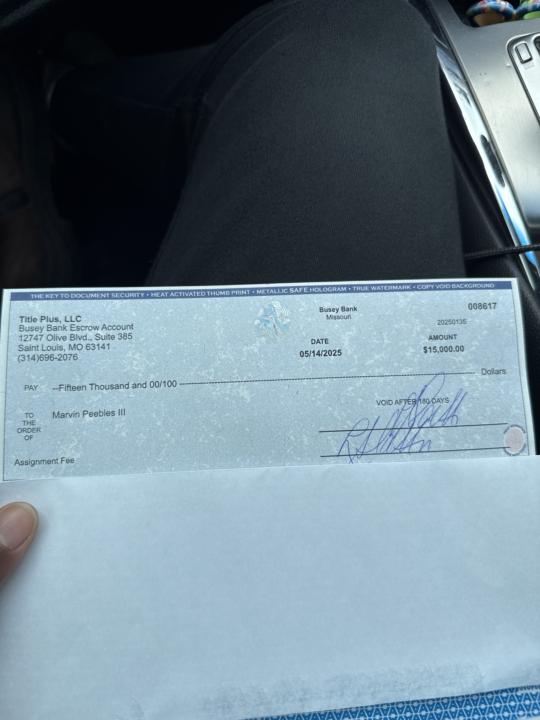Activity
Mon
Wed
Fri
Sun
Nov
Dec
Jan
Feb
Mar
Apr
May
Jun
Jul
Aug
Sep
What is this?
Less
More
Memberships
Wholesaling Real Estate
51.9k members • Free
182 contributions to Wholesaling Real Estate
🚨 TAKE MY FREE 35-Page Guide!🚨
Version 2 of my Free Wholesaling Guide/Book has been Written! LETS GET TO WORK!!! https://d2saw6je89goi1.cloudfront.net/uploads/digital_asset/file/1220172/Zach_Ginn_s_FULL_Wholesaling_Course__NEW___2_.pdf
Quick AI Analysis of Texas Memorandum Bill (NOT LEGAL ADVICE)
https://legiscan.com/TX/text/HB4063/id/3230106 This Texas bill proposes a new law—Section 12.020 of the Property Code—that regulates how "unilateral memorandums of contract" involving residential property are recorded and released. Here's a plain-English summary of what the bill does and what it means: Key Purpose The bill protects property owners from having real estate sales or options falsely recorded against their property by someone who is not the owner and only claims to have a contract with the owner. Definitions - Residential Property: Single-family homes, duplexes, triplexes, fourplexes, or individual condo units. - Unilateral Memorandum of Contract: A legal document filed by a non-owner that claims they have a right (e.g., a purchase contract or option) to buy or control the property. This document is not signed by the property owner. Main Provisions 🔹 Filing Requirements (Section b) Anyone who files a unilateral memorandum: - Must provide their mailing address. - Must mail a copy of the memorandum and a notice letter to the property owner at: - Must use registered or certified mail. 🔹 Owner's Right to Challenge (Section c–d) If an owner receives such a memorandum or learns of it: - They can file an affidavit and certificate of mailing saying the memorandum is invalid. - They must send a copy of this affidavit to the filer of the original memorandum. 🔹 Effect of Owner's Affidavit (Section e–f) - Once the owner's affidavit is filed and 45 days pass, the memorandum becomes unenforceable unless the original filer submits a contradicting affidavit. - After 45 days: 🔹 Contradicting Affidavit (Section g) If the original filer thinks the owner's affidavit is false: - They must file their own contradicting affidavit within 45 days to preserve their rights. 🔹 Noncompliance Consequences (Section k) If the person filing the memorandum doesn’t follow the law (i.e., fails to send notice properly):
5 likes • May 20
It seems like the title company would have the proof of assignment of contract or contract so why would anybody go file something with the court when they are not the legal owner. So somebody has done this but they are stating they have rights but the transaction has not been closed yet. Until the cash buyer pays the seller.
Who’s Got Your Money?! 💵
WHOS WORKING TODAY?!? There’s money out there and someone’s got it! WHOS GOT MY MONEY?!?!!!!! 💰

FIRST ASSIGNMENT CHECK!!!!!!!
It’s been a long two years and when I say long I mean LOOONNGGGGGGG. It was all worth it at the end and I’d do it the same way all over again! Thank you to Rick & Zach for all the amazing info and free game you guys give out. If you are in the same boat as me and still haven’t done your first deal just keep going! I promise you your efforts aren’t for nothing! Never give up on yourself and your goals! I’m too turnt right now and ready to do my next!

1-10 of 182
@neva-wilson-5526
I live in Denver, CO. I am retired. My goal is to wholesale homes and also find a fsbo fixer upper I can buy cheaply.
Denver is too expensive.
Active 135d ago
Joined Dec 9, 2024
Powered by



